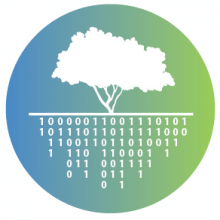CYBELE
This project has received funding from the European Union's Horizon 2020 research and innovation program under grant agreement No. 825355. Project duration: 1/1/2019 – 12/31/2021.
Fostering precision agriculture and livestock farming through secure access to large-scale HPC-enabled virtual industrial experimentation environment empowering scalable Big Data analytics
CYBELE is a source of innovation and creates value in agri-food and its sectors, specifically the sub-domains of precision agriculture (PA) and precision livestock farming (PLF), as demonstrated by the real-life industrial cases to be supported, increasing capacity building within the industrial and research community. Because agriculture is a high-volume business with low operational efficiency, CYBELE aims to demonstrate how the convergence of high-performance computing (HPC), big data, cloud computing, and the Internet of Things (IoT) can revolutionize farming, reduce scarcity, and increase food supply, bringing social, economic, and environmental benefits.
CYBELE aims to ensure that stakeholders have integrated, unmediated access to a vast amount of large-scale datasets of diverse types from a variety of sources, and that they are capable of generating value and extracting insights by providing secure and unmediated access to large-scale HPC infrastructures supporting data discovery, processing, combination, and visualization services, solving challenges modeled as mathematical algorithms requiring high computing power.
CYBELE develops large-scale HPC-enabled test benches and delivers a distributed big data management architecture and a data management strategy providing:
- Integrated, unmediated access to large-scale datasets of diverse types from a multitude of distributed data sources
- A data- and service-driven virtual HPC-enabled environment supporting the execution of multi-parametric agri-food-related impact model experiments, optimizing the features of large-scale dataset processing
- An array of domain-specific and general services in addition to the virtual research environment that facilitates the gaining of know-how from agri-food-related big data, which addresses the issue of increasing responsiveness and empowering computer-assisted decision-making and empowers stakeholders to use resources in a more environmentally responsible way, improve sourcing decisions, and implement circular-economy solutions in the food chain.
